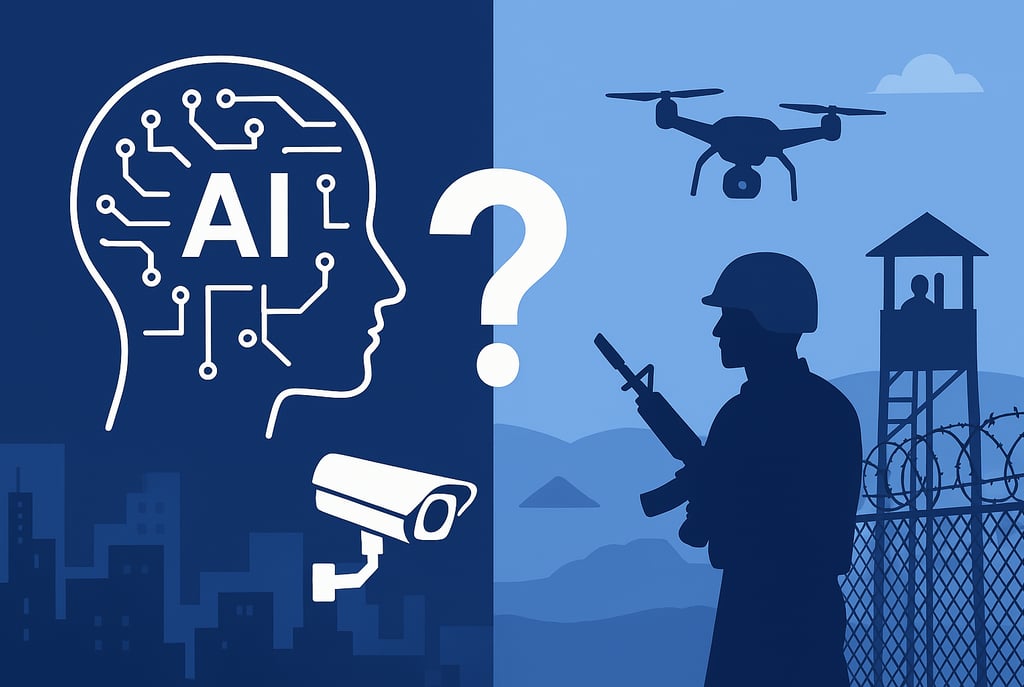AI and National Security: Where Do We Draw the Line Between Protection and Surveillance?
Artificial Intelligence has become a powerful tool in the realm of national security. Governments worldwide are increasingly relying on AI to strengthen defense systems, detect threats, and maintain safety. From monitoring cyberattacks to analyzing satellite images, AI provides speed and accuracy that humans alone cannot achieve. However, as its role expands, one critical question arises: where do we draw the line between protection and surveillance?


How AI Strengthens National Security
Threat Detection: AI can analyze vast amounts of data from multiple sources, identifying potential cyber threats or terrorist activities before they happen.
Border Security: Facial recognition systems, drones, and automated monitoring tools help secure borders more effectively.
Cyber Defense: AI-driven algorithms continuously scan for anomalies in government networks, protecting sensitive data from hackers.
Military Applications: Autonomous systems, predictive analytics, and decision-support tools enhance strategy and battlefield operations.
The Surveillance Dilemma
While these capabilities strengthen national safety, they also raise concerns:
Privacy Intrusion: Tools like facial recognition and mass data collection can track citizens’ movements and activities.
Abuse of Power: If unchecked, governments may use AI for constant monitoring, leading to reduced personal freedoms.
Data Security Risks: The more data governments collect, the higher the risk of leaks, hacks, or misuse.
Ethical Boundaries: AI can make decisions that affect citizens’ lives, raising questions about fairness and accountability.
Finding the Balance
The challenge lies in balancing security and freedom:
Clear Regulations: Governments must establish laws that prevent misuse of AI surveillance.
Transparency: Citizens should know what kind of data is collected and how it is used.
Oversight: Independent organizations can monitor and review AI-driven national security programs.
Global Cooperation: Since threats often cross borders, international standards on AI in security could help maintain fairness.
Conclusion
AI is transforming national security, offering unprecedented tools to protect nations. But with great power comes great responsibility. If not managed properly, the same technology meant to protect us could erode privacy and freedom. The future of AI in national security depends on striking the right balance between safety and human rights—a balance that requires vigilance, ethics, and accountability.